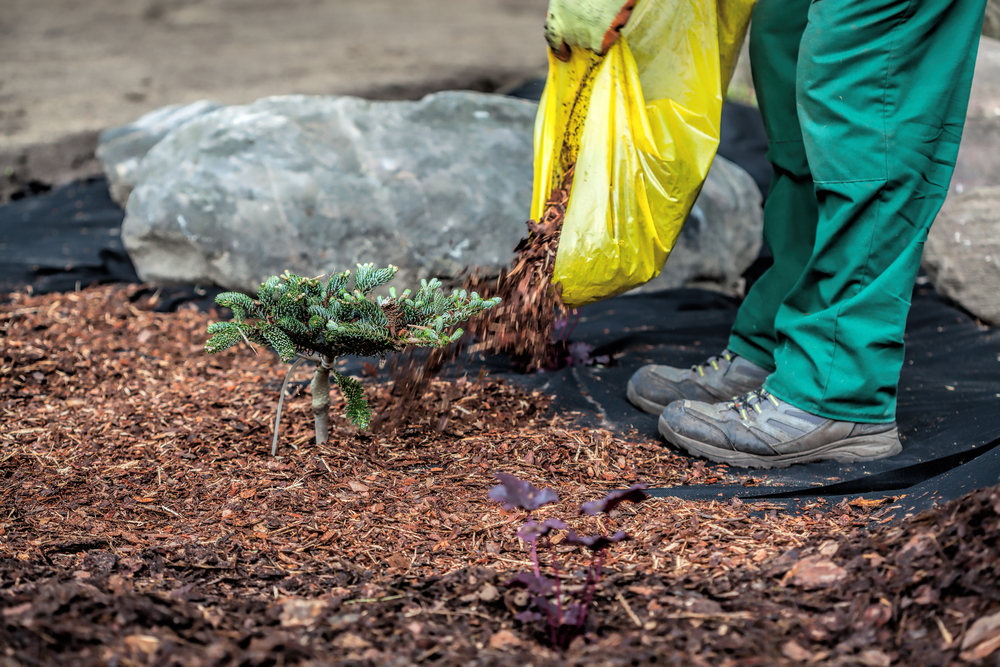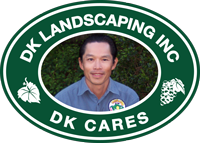4 Best Mulch Options for Your Home Landscape
Your home landscaping is the first thing people notice when they pay you a visit. It should not only be intricate but also well maintained. However, a network of components working together to sustain healthy plants is beyond the landscape aesthetics. Mulch is among the key elements. While it is considered the gardener’s best friend, mulching is usually the most overlooked gardening technique. Most gardeners fail to understand that mulching is a powerful technique to incorporate into their landscape as it comes in handy with benefits.
Selecting the suitable landscape mulch can be overwhelming, especially for a beginner. Read on to learn the ideal type of mulch for your landscape. But first, let’s understand what mulch is and why it’s essential for your landscape.

What is Mulch?
Mulch is any material laid over the soil’s surface as a cover. Here are the two types of mulch:
- Organic mulch. Includes formerly living materials such as straws and wood chips
- Inorganic mulch. Consists of synthetic materials such as plastics
Benefits of Mulching
There is no better way to sustain a healthy landscape than covering the bare soil. Beyond the aesthetics, here is why mulching is essential.
- Controls weeds
- Provides insulation for roots
- Prevents soil erosion
- Add nutrients to the soil
- Encourages earthworms to move-In
Selecting the Right Mulch for the Job
There is no perfect mulch. It requires careful consideration of each type of mulch to help you choose the best mulch for a particular setting. Several factors such as appearance, availability, and expense also play a role in determining the best mulch. If you wonder which mulch type is ideal for your landscape, weigh out the pros and cons of the following mulch types before laying it down.
Wood Chips mulch
Wood mulch is chopped-up wood material in a wide range of sizes. The variety of sizes prevents compaction and therefore allows easy water infiltration. Cedar, pine, and hemlock make effective mulches.
Pros
- Decomposes at different rates, creating a diverse environment for soil organisms.
- Readily available
- Easy to apply and remove
- Environmentally clean
Cons
- The wrong application can cause molds, rot, or suffocation of the roots
- Not ideal for every plant due to cases of nitrogen theft when wood chips are breaking down
Straw mulch
Straw mulch is a remnant of cereal and grain crops. The straw mulch prevents the grass seeds from washing off while preventing rodents. However, do not confuse straw mulch with hay as far as mulches go. The latter is known to contain weed seeds and sometimes molds. Therefore, always go for certified weed-free straws as your mulching option.
Pros
- It’s clean
- It’s light
- It breaks down quickly and composts into nutrients
Cons
- Straw mulch can be messy
- They easily blow around in wind
Rock mulch
Rocks tend to be more expensive than organic mulches. Rocks do not break down easily; hence annual reapplication is not required. Rock mulch is an excellent choice if you have drainage issues on your property as it allows quick drainage of water. When using rocks as mulch, there are essential things to keep in mind:
- A fabric weed barrier is needed underneath to prevent weeds from sprouting through the rocks
- Only drought-tolerant plants thrive in rock-mulched beds
- Steel edging is required to keep off stray rocks to achieve a tidy appearance
Pros
- They are durable
- Require low maintenance
- They are fire-proof
- They keep off weeds longer
Cons
- They are expensive
- Rocks don’t add anything to the soil, unlike organic mulches
Geotextile mulch
Geotextile is also known as landscaping fabric. It is made predominantly from starch and is 100% eco-friendly. Geotextiles are an improvement over old-style plastic mulches. They not only suppress weeds but also reduce surface evaporation. Choosing the right one can be overwhelming with so many different geotextiles. Some factors to consider are: ease of the material applied to the land, ease of water penetration, relative cost, and effectiveness of the material in weed suppression.
Pros
- No clean-up is required
- Geotextile can minimize nutrient leaching during the rainy season
Cons
- It is expensive
- Prone to blockage by residues
Conclusion
Your choice of mulch is a matter of personal taste and preference. However, mulching is not as easy as grabbing shredded straws and pouring them around your plants. There is the right way to mulch. When a professional landscaper is involved, mulching can slow the erosion process, retain soil moisture, and control weeds.
Are you looking for a reliable landscape maintenance company to advise you accordingly on your landscape’s ideal mulch? We specialize in maintenance, repair, and water-saving landscaping design. By hiring us, we guarantee you’ll get the highest quality mulch product at a reasonable price. Reach out to us.
You can leave a response, or trackback from your own site. Back to Top
Leave a Reply





